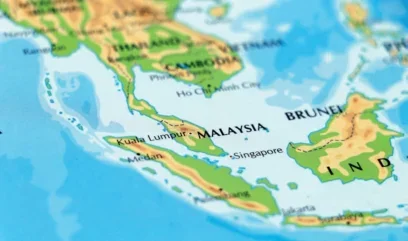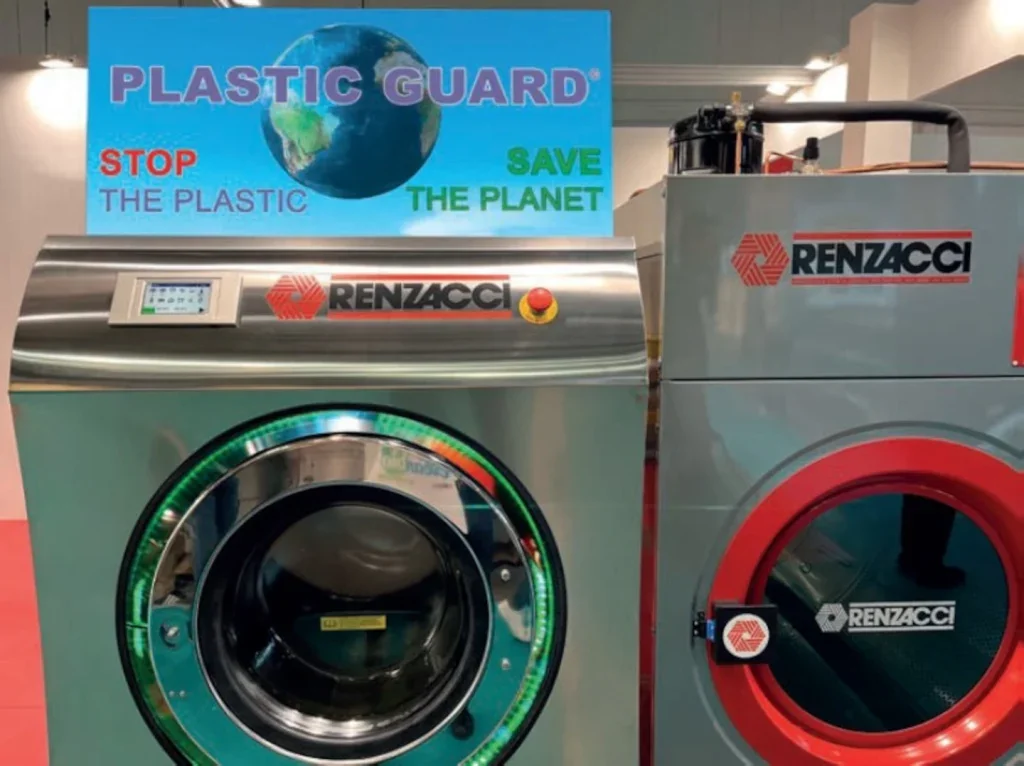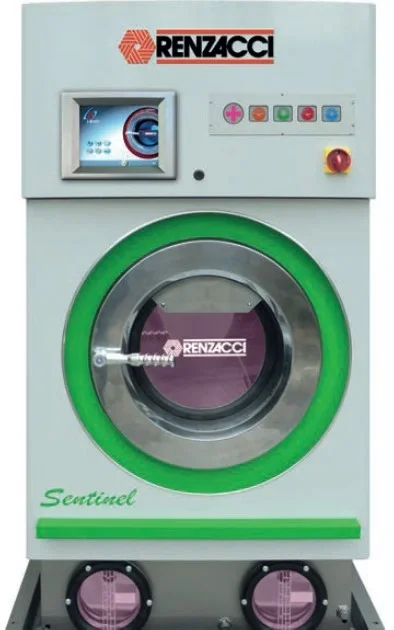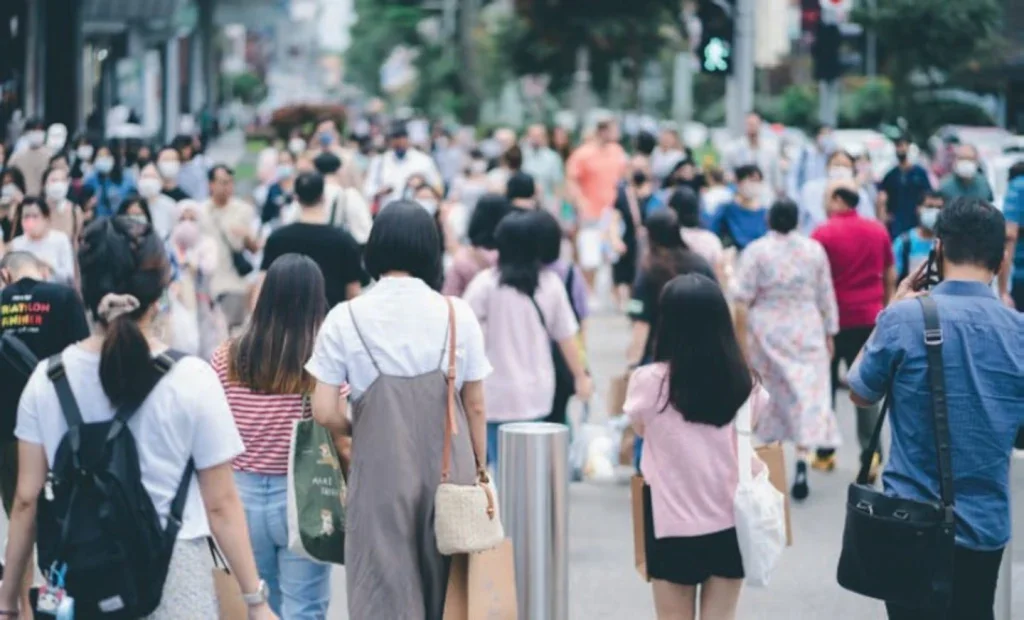
The laundry and drycleaning sector in South Asia and Asia Pacific states will provide some major opportunities for growth for the industry’s global players in years to come, thanks to the ever-growing demand for quality textile care services and the improving standard of living in many states.
In contrast to major developed nations where local textile care markets have almost completely exhausted their potential for active growth, many South Asian and Pacific states are experiencing stable economic growth at present, which contributes to the growth of demand for textile care services.
Given that the region accounts for most of the global population, whose living standards are constantly improving, a further acceleration of expansion is considered a priority for a majority of the industry’s global providers of services as well as equipment suppliers.
In fact, most of the leading players have long operated in the South Asia region and Asia Pacific states. For example, Renzacci first expanded into Indonesia and Pakistan as far back in 1973 and has significantly strengthened its position since that time.
Marco Niccolini, general sales director at Renzacci says that the level of competition in most of these markets is constantly tightening, while in addition to global operators, local players are also expanding their output and market presence. He says, for instance, a similar situation is observed in India, where in recent years a number of strong domestic manufacturers have been established, including for the ‘so-called’ drycleaning shops – which in many cases use wetcleaning. As he has said before, wetcleaning is not an alternative to drycleaning but an additional choice.
According to Niccolini, as in Western countries there is the ever-growing trend towards a sustainable economy in many regional states, which affects the local textile care sectors. As he also adds, this is reflected by the equally-growing demand for and use of natural solvents, including biodegradable products and bigger attention to water savings. The latter is especially important, given traditional problems with clean water in many of Asian states.
As for Renzacci, it continues to actively supply of its comprehensive line of washers and other equipment to India and other regional states, providing its own servicing and not outsourcing.
In the meantime, the South Asia and Pacific region has always been within Ecolab’s sphere of interest. As Manish Khandelwal, managing director of Ecolab India told LCni, Ecolab remains committed to innovation, sustainability, and growth in the laundry and textile care market in India and South Asia.
In recent years the company has launched a new line of products for the region, planning a further expansion in years to come. Khandelwal comments: “Ecolab provides comprehensive commercial laundry solutions, focusing on improving operations to achieve customers’ goals. Our offerings include innovative and data-driven cleaning technology, smart solutions to optimise operations, and personal service and consulting. Our commercial laundry data intelligence platform delivers real-time visibility of entire operations with data-driven insights. With the increased focus and need for sustainability, we have introduced a new range of environment-friendly cleaning products. Our optimisation solutions for treating wastewater streams and water recycling, help improve water and energy efficiency.
“Additionally, by leveraging our technological capabilities, we help businesses create water management strategies that ‘reduce, reuse and recycle.”
The company sees strong indicators for significant growth in demand for laundry and drycleaning services in India and the surrounding South Asian region, prompted by rapid urbanisation, increasing disposable income and a growing hospitality sector.
Khandelwal continues: “As more people move to urban areas, the demand for professional laundry services increases due to a busier lifestyle and the convenience these services offer. This is supported by an increase in disposable income, wherein more households can afford professional laundry services. Additionally, with the exponential expansion within the hospitality industry, there is a growing demand from hotels and restaurants for high-quality laundry services that meet their exacting standards.”
Still, according to the company, there are serious challenges, which prevent its more active growth in the Indian market:
- Laundry services deploy a substantial amount of water. Efficient water management is especially crucial, given that several parts of South-Asia are water stressed
- Laundry services are energy-intensive. Efficient energy management can positively impact the profitability of laundry businesses.
- The introduction of stricter environmental regulations has prompted the need for environmentally-friendly and sustainable solutions within the laundry services industry
In addition to the South Asia region, the company has also plans to accelerate its expansion in the Asia Pacific region, where it also sees significant opportunities for growth.
Lionel Kapetanakos, Ecolab’s Institutional Business, Asia Pacific Strategic Business Leader, comments: “Laundry in Asia Pacific will move from inhouse laundry. Our customers, hotels, hospitals and so on are moving to commercial laundry operations. The cost to operate your own on-premise laundry today is really getting prohibitive, in terms of capital expenditure, repairs and maintenance, water and energy, labour and of course space is at a premium in Singapore and laundries in commercial spaces like hotels have a large footprint.
“We are also seeing more end users, hotels, restaurants…convert from buying their own linen to using rental linen from suppliers. Drycleaning has also reduced. The first reason is of course the capital costs to set up a drycleaning operation. Second reason is that the traditional solvent used in drycleaning is not environmentally friendly with some converting from Perc solvent to hydrocarbon or silicon. The market seems to be moving towards more of a wetclean operation which can work with items that usually need be drycleaned.”
High costs, particularly for labour, water and energy continue to put on serious pressure for Ecolab and other global players, operating in the region.
Kapetanakos continues: “The rising cost of labour, water, energy, linen replacement is certainly increasing the costs of operating today. Commercial laundries are looking to new technologies to get more efficient and more sustainable in the way they process linen. This means using less water, less energy to heat the water and chemicals which are safer for the environment. They need to maintain linen integrity, which means using a washing process that provides linen longevity, form, and colour. Their customers demand a high-quality product and in today’s competitive environment there is no room for poor quality. As for Ecolab, the company helps its customers wash linen in temperatures as low as 40C, we do this by using the latest advancements in chemical technology, which reduces energy costs, uses less water, shortens the wash cycle times while increases the life of the linen. This helps laundries reduce their operating costs, while delivering an end result their customers expect.”

The region is also of interest for Lapauw, which puts big hopes on the development especially in the Asia Pacific area.
As David Kidney, regional manager Lapauw Asia Pacific explains, currently “the company sees the majority of business being specific to flatwork ironing across our range of ironers”.
In terms of market prospects, according to Kidney, the region shows robust inquiries “however there is still a certain degree of hesitation as a result of still being cautious of pandemic times, the state of world affairs – in some cases domestic – and financial woes resulting from corruption”.
“Challenges for the overall industry are labour, cost of operation and being able to decide to grow or be content with operating levels specific to volume.” He adds that the company sees the biggest potential in the Philippines and Vietnam these days.
The Asian region also attracts interest from Girbau, which traditionally puts its biggest expectations on countries of the Asia Pacific region.

Yau Kim Yan, president of Girbau Malaysia, comments: “For the first half of the year, Philippines is seeing the highest growth in the region. With many hotels upcoming and lacking of commercial laundry to serve the booming hotel industry. Many of the hotels are looking into having their in-house laundry (OPL) or to build a centralised laundry facilities to serve their cluster of hotels. Tourists’ arrival to Singapore, Philippines, Vietnam and especially Thailand has boosted the laundry market possibly back to prepandemic level. With high occupancy consistency in major hotels, customers can invest into providing a better service to their patrons by providing a cleaner and more sustainable environment to the patrons».
Kim Yan believes that the demand for laundry will be growing in the coming years. “As for drycleaning, it is somewhat more alarming due to environment issues. There is the option of using weycleaning to replace the drycleaning process. The major challenge in the industry is the laundry knowledge of the buyer. Many of the buyers are still very focused on the pricing instead of the long-term benefits such as savings on utilities and operational efficiency and creating a positive impact to Mother Earth.
“There are connections on the performance from the washer to dryer to ironing line which customers require to understand before making a buying decision. Example: A consistent high spin washer can lead to a shorter time in the dryer and ironing line which will then reduce the overall cost of the laundry. The buyer are savings on gas, electric, steam, operation time and labour cost which is commonly the highest cost in an operation. Regional countries with high potential of attracting tourism such as Thailand, Philippines and Vietnam are the few promising growth, in my opinion.”

Finally, YS Wang, managing director, Jensen Asia remains slightly more pessimistic. Wang comments: “In general, commercial laundries in South East Asia are slowly recovering from the Covid pandemic. Most laundries are back at 60- 70% of pre-Covid capacity. Some laundries are even experiencing higher capacity than before the pandemic. This could also be due to the sudden surge in tourist in some of the countries such as Thailand, Singapore, Philippines and Vietnam. However, the rising cost of labour, materials and energy price affected their profit margin. Most laundry owners are raising their prices in order to keep up with the current market price.”
Wang expects demand for laundry and drycleaning services will continue to grow in the Asia Pacific region, while the major challenges would be the shortage of labour and the local regulation to push for renewable and clean energy, forcing some of the small to medium size laundries to shut down their business.
‘For our company, we are constantly working on new innovative products to minimise the challenges faced by our customers. However, the inability to obtain higher bank financing or loans may force some of the owners to look for cheaper products instead of investing in higher quality and standard products. We believe that the Arabic Peninsula region is the most promising for growth in B2B and B2C laundry business.”






